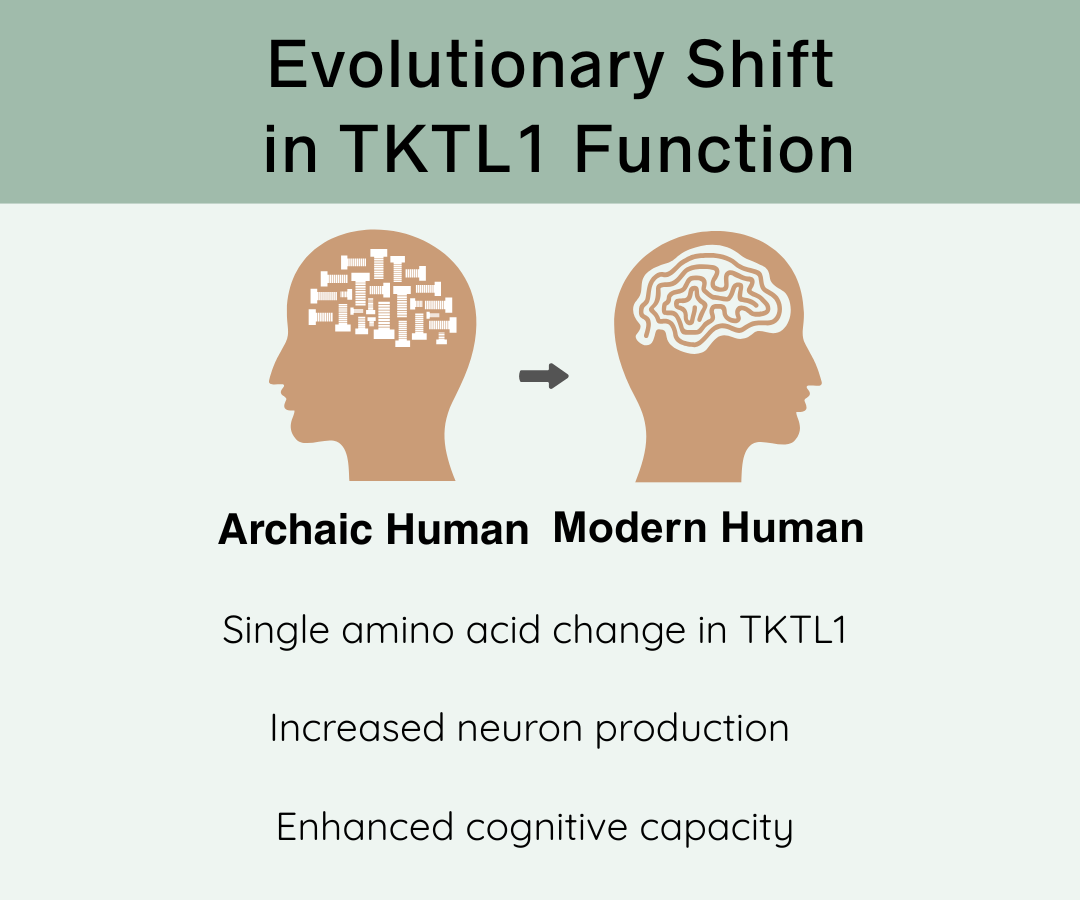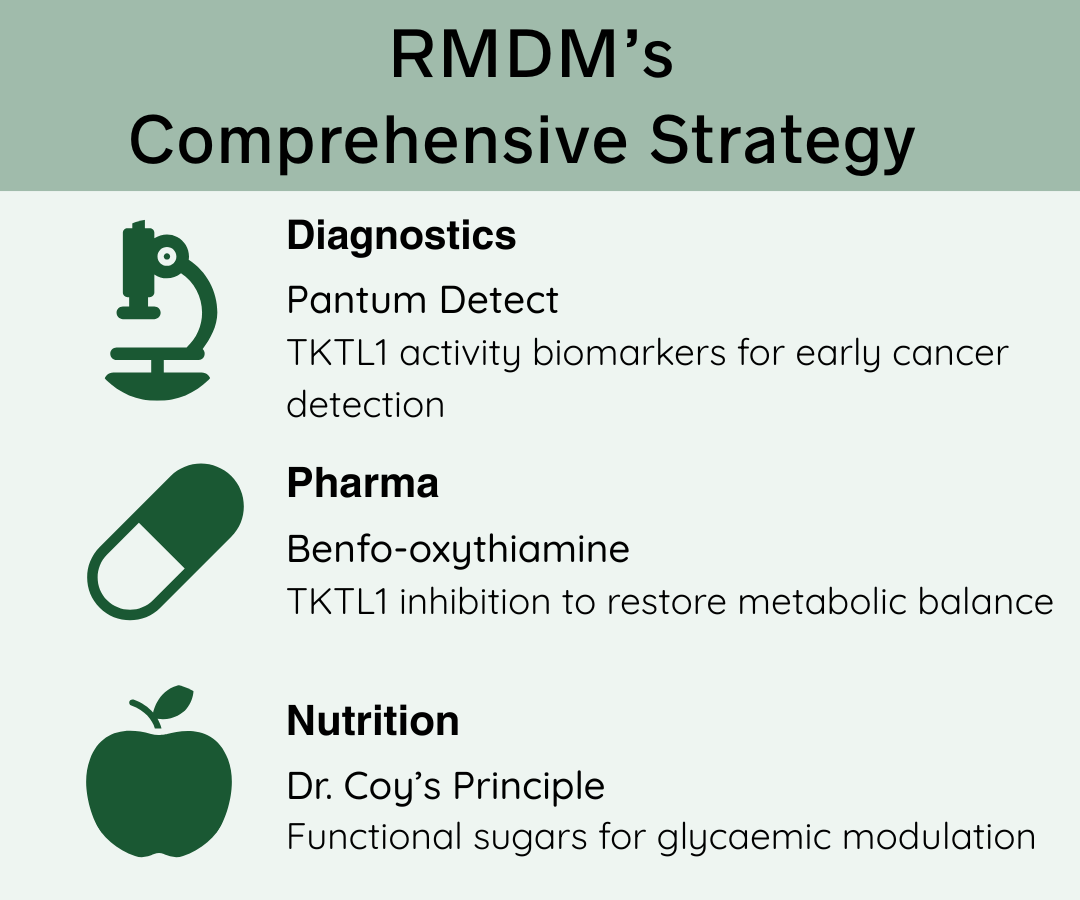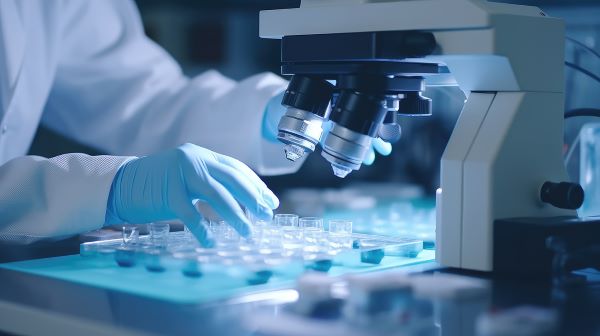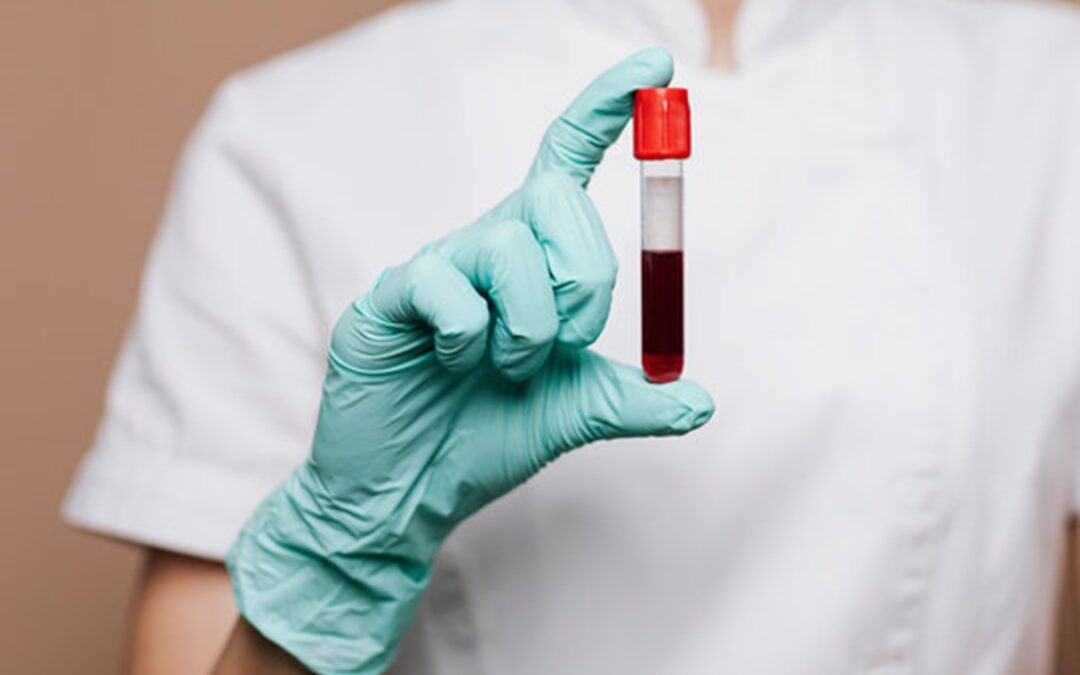TKTL1
The Gene That Changed Everything
Discovered by Dr Johannes Coy in 1995, TKTL1 (Transketolase-like 1) is far more than just a gene – it’s the missing link connecting our evolutionary past with the future of health.
Recognised as one of the most exciting scientific breakthroughs of our time, TKTL1 is now understood as a master regulator of metabolism, immunity, and cellular growth.
In 2022, Nobel Prize winner Svante Pääbo and researchers from the Max Planck Society revealed that a single amino acid change in TKTL1 gave modern humans a decisive edge over archaic humans. This tiny genetic tweak accelerated brain development, resulting in more neurons, increased cortical folding, and ultimately, superior cognitive abilities – the very foundation of what makes us uniquely human.
But TKTL1’s story goes beyond the brain. It reaches deep into our cells, shaping how we live, grow, heal, and survive.


The Powerhouse of Modern Metabolism
The TKTL1 metabolic pathway drives the pentose phosphate pathway, unlocking a remarkable ability to speed up cell growth, produce essential nucleotides for DNA and RNA, neutralise oxidative stress, and evade immune detection – a key tactic used by cancer cells.
This underpins aerobic glycolysis, also known as the Warburg effect, a metabolic strategy adopted by tumours, stem cells, and immune cells to thrive and adapt under stress.
Recent research has also highlighted TKTL1’s vital role in the immune system, especially in cancer and infections. These findings mark a paradigm shift, placing TKTL1 at the crossroads of metabolism, immunity, and chronic disease.
An Evolutionary Game-Changer
From an evolutionary perspective, the emergence of TKTL1’s phosphoketolase enzyme activity was groundbreaking.
It enabled mammals to evolve with a smarter, more flexible metabolism which is perfectly suited for survival in a rapidly changing world. What was once dismissed as inefficient – fermenting glucose into lactic acid – is now recognised as a brilliant evolutionary advantage.
Thanks to TKTL1, cells can generate energy while simultaneously producing new cells, a critical system for development, healing, and responding to disease.
Beyond science, TKTL1 represents the start of a new health paradigm, rooted in evolutionary brilliance and driven by today’s scientific discoveries.

Find out more about how we harness TKTL1 for our solution

Diagnostics
The world’s first blood test for the early detection of all cancers.

Sugars
Natural sugars that improve everyday well-being.

Pharma
Research and development of a prodrug to improve cancer treatment success rates.
Find out more about how we harness TKTL1 for our solution
Early Multi-Cancer Detection with TKTL1-Based Blood Test
The world’s first blood test for the early detection of all cancers.
Sugars
Natural sugars that improve everyday well-being.
Pharma
Research and development of a prodrug to improve cancer treatment success rates.
Other Resources You Might Find Useful
PanTum Detect® Now Available at the Doctors Centre Polyclinic in Dubai
We’re excited to announce that RMDM Group’s PanTum Detect® blood test is officially live at the Doctors Centre Polyclinic in Dubai.
Reducing Late-Stage Diagnoses: How PanTum Detect Fits into Emerging MCED Strategies
New modelling shows annual multi-cancer early detection (MCED) tests could cut late-stage diagnoses by 49%. RMDM Group’s PanTum Detect goes further—identifying both early-stage cancers and precancerous changes with high accuracy. With a positive predictive value of 66.47%, it offers a powerful, non-invasive tool to fill gaps in current screening and…
Harnessing Sugar’s Dual Role in Cancer: From Fuel to Therapeutic Target
While sugar is often seen as a cancer culprit, new research shows it can also be a powerful tool in diagnosis, treatment, and prevention. From the tumour-fuelling role of glucose to the therapeutic potential of functional sugars like mannose, this article explores how understanding sugar metabolism—especially through the TKTL1 gene…
New Research Links Sugar-Sweetened Beverages to Oral Cavity Cancer Risk in Women
A recent study published in JAMA Otolaryngology has uncovered a concerning link between the consumption of sugar-sweetened beverages (SSBs) and an increased risk of oral cavity cancer in women, including both smokers and non-smokers. The findings show that women who regularly consumed sugary drinks were found to have a significantly…
Advancing Prostate Cancer Detection: The Role of AI and Blood-Based Screening
The AI-powered prostate cancer test developed by EDX Medical Group represents a major advancement in early detection. By analysing over 100 biological markers in blood and urine samples, it offers a more accurate assessment of prostate cancer risk than traditional methods like PSA testing, highlighting the critical role of early…
NHS Backlogs, Less Rhetoric and More Solutions by Dr. Letizia Gulino, Head of Science and Technology RMDM
We are witnessing a crucial moment for the NHS as it promises to reduce waiting lists and deliver timely care. This commitment resonates with patients and healthcare professionals. However, while the intentions behind these proposals are laudable, critical questions remain regarding their feasibility, workforce capacity, and long-term sustainability by the…
Reforming Prostate Cancer Testing: Chris Hoy’s Urgent Appeal for Change
Olympic cyclist Sir Chris Hoy is advocating for improved prostate cancer tests for younger men following his terminal diagnosis in September 2023. His recent interview with the BBC reveals the limitations of the NHS’s current protocol for prostate cancer testing.
Government and Tech Innovators Unite to Advance Cancer Detection: The Potential of Pantum Detect
In a recent press release, the UK government outlined an initiative to boost tech deals aimed at further innovating cancer diagnosis in the country. This plan follows the Darzi review, which highlighted the critical state of the NHS, particularly the urgent need to improve cancer survival rates.
Darzi Report Findings: The Urgent Need for Innovative Technology in NHS Cancer Care
In the House of Commons, Health Secretary Wes Streeting introduced a "national mission" to tackle key health challenges. Presenting the Darzi report, commissioned by the Labour government, he outlined the NHS's ongoing struggles in the post-pandemic era, including missed targets in cancer care, A&E services, and hospital treatment.
The UK’s Approach to Multi-Cancer Detection Tests
Last month, the UK National Screening Committee (UK NSC) shared their updated view on Multi-Cancer Detection (MCD) tests. They highlighted the potential and the immediate need for a multi-cancer detection solution in the UK. They are working to outline a roadmap for finding this solution. At RMDM, we are at…









